
(FinalCall.com) – Most have no problem with individuals donating their vital organs, as long as it is voluntary, however, Black people have been victims of involuntary medical experimentation, which causes a certain level of reticence and suspicion when asked to participate in non-emergency medical procedures.
Because of increased levels of high blood pressure, diabetes and other health challenges existing within Black communities, the need for organs is greater, however for those very same reasons, the suitable donor pool is smaller.
According to statistics from the Organ Procurement and Transplantation Network (OPTN), almost 35 percent of the more than 100,000 people on the national waiting list for kidney transplants are Black. Mistrust along with inadequate health care facilities in Black communities are major reasons many choose not to donate organs, according to Philadelphia based doctor Safiyya Shabazz.
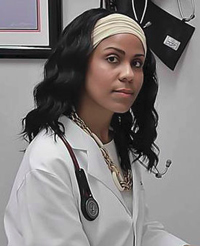
Dr. Safiyya Shabazz
|
“Yes, that’s definitely something that I think is based in well-founded fears, but sometimes it extends into self-harm when we don’t understand a thing enough to realize when the benefits of a procedure would outweigh the risks. That’s definitely something that I see regularly,” said Dr. Shabazz. “I can tell you that there is a great need for Black people who are suffering from certain illnesses that could be treated with organ donations and there are times that there is a limited supply of organs that match appropriately which would best come from other Black people,” she added.
Unethical biomedical experimentation
Throughout history, unprincipled medical experimentation has targeted socially disadvantaged groups. No group has been more socially disadvantaged in America than Blacks. Black people have often found themselves trapped in a shadowy world where medical procedures and testing have taken place without informed consent. The genes, bones, body tissues, and organs of the poor are often used to generate revenue.
North Carolina approved the sterilization of about 7,600 people from 1929 to 1974, mostly without their consent. In 2002, then-Governor Michael Easley issued an apology to those sterilized under the authority of the North Carolina Eugenics Board. The board remained in operation until 1977 and the laws authorizing involuntary sterilization remained on the books until being repealed in 2003 by the state’s legislators.
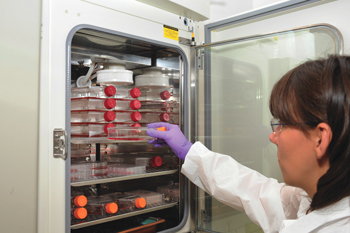
In this July 30, 2013 photo made available by the National Institutes of Health, a researcher places HeLa cells in an incubator at 37 degrees Celsius at a lab at the National Cancer Institute in order for them to multiply. The cancerous cells, originally taken from Henrietta Lacks in 1951 without her knowledge or consent, were the first human cells that could be grown indefinitely in a laboratory. These “HeLa” cells have been crucial for key developments in such areas as vaccines and cancer treatments.
|
Under the 1929 North Carolina Sterilization Law, doctors conducted vasectomies, castrations, salpingectomies (surgical removal of the Fallopian tubes) and ovariectomies (surgical removal of one or both ovaries). A financial settlement was reached and in June of this year, victims and their families who have filed claims are slated to receive reparations from a $10 million fund. It is estimated that close to 3,000 of the victims born in or before 1961, may still be living.
In mid-March, Virginia became the second state to acknowledge forced sterilization agreeing to a financial settlement of $400,000 to be dispersed among the nearly a dozen remaining living victims of the Virginia Eugenical Sterilization Act, which was signed into law on March 20, 1924. Reportedly, more than 7,000 Virginians were forcibly sterilized between 1924 and 1979 when the program ended.
Over 30 American states had active targeted forced sterilization programs and laws on the books to justify their dishonorable deeds.
The infamous Tuskegee Experiment, in which 399 Black men between 1932 and 1972, were subjects of a study by the U.S. Public Health Service to examine the progression of untreated syphilis, is one well-known example of unethical biomedical research. Another is the “immortal” cell line of Henrietta Lacks. “HeLa cells” (derived from letters of her first and last name) have been used globally for extensive scientific research. She died of cervical cancer in 1951 at the age of 31, but her tissue samples were taken—without consent, nor compensation—and used to conduct groundbreaking research related to vaccines and more.
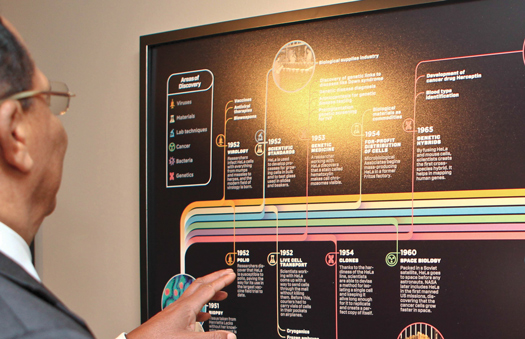
In March of 2013, The Honorable Minister Louis Farrakhan and a Nation of Islam delegation were led on a tour of the Legacy Museum on the campus of Tuskegee University. He is pointing to a display in the exhibit titled: “The Patient, The Project, The Partnership: The Mass Production and Distribution of HeLa Cells,” which chronicles the decades of biomedical research spawned from the cellular tissue of Henrietta Lacks. Photo: Final Call Archives
|
According to Harriet A. Washington, author of “Deadly Monopolies: The Shocking Corporate Takeover of Life Itself—And the Consequences for Your Health and Our Medical Future,” the HeLa cells “transformed medicine.”
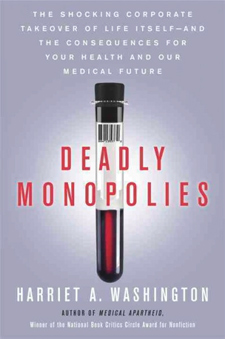
|
“HeLa became and remains a versatile tool in the laboratory and many treatments and cures were predicated on its use,” wrote Washington. “Today HeLa cells proliferate with undiminished vigor in laboratories and tissue bands, and no other cell lines have surpassed their longevity.”
Washington, a leading researcher in the study of the medical industrial complex also authored the book “Medical Apartheid: The Dark History of Medical Experimentation on Black Americans from Colonial Times to the Present.”
The U.S. Patent Office has granted thousands of patents on various genes and genetic compositions.
Organ harvesting and trafficking
Raising the subject of “organ harvesting” or “organ trafficking” is controversial. It is often portrayed as the talk of conspiracy theorists, ridiculed, and dismissed. However, research has uncovered evidence of a thriving global organ trade.
There have long been claims of Black organ harvesting. Most notably, political comedian Dick Gregory made the connection drawing attention to the number of Blacks being killed in urban areas, and the long delays in allowing families to receive the bodies of those slain under suspicious circumstances. Prominent Pan-Africanist psychologist Dr. Umar Abdullah Johnson, has even gone on record discouraging Black people from marking that they are volunteering to be organ donors on their licenses saying it makes them easy targets for those in need of body parts who have access to their information.
Skeptical observers already viewed the death of Valdosta, Georgia teenager Kendrick Johnson as suspicious.
The 17-year-old athlete was found dead January 11, 2013 at Lowndes County High School. Authorities called his death an accident, asserting he became trapped after falling head first into a rolled up gym mat. The first autopsy declared the death to be due to positional asphyxia, and the case was considered closed.
Later, a second autopsy by an independent pathologist ordered by the family determined Kendrick’s death to have been caused by blunt force trauma. Even more red flags were raised when it was discovered Kendrick’s brain, heart, lungs, and liver were missing and replaced with newspaper.
That incident in the minds of many, resurrected the haunting specter of America’s shocking and scandalous history of unethical medical experimentation involving Black people.
Recent investigative reports have also shown many Blacks dying while in America’s prisons. It is well known that with the privatization of the prison industrial complex, inmates are being used for cheap and even sometimes free labor, but could they also be used for biomedical experimentation and body parts? Such activities are certainly not without precedent.
Perhaps the most well-known incidents regarding the implementation of such methods involve Josef Mengele, an officer in the German Schutzstaffel and a physician at the Auschwitz concentration camp during World War II. Historians found he selected many to be killed in gas chambers, and ruthlessly conducted immoral medical experiments on prisoners.
The Washington D.C.-based Doctors Against Forced Organ Harvesting documented many cases of the Chinese government harvesting organs of executed prisoners and allege they may also be harvesting the organs of jailed political opponents. The organization was actually formed after documenting what they described as “unethical organ procurement practices in China.”
Dr. Yehuda Hiss, who for a time served as Israeli’s chief pathologist at the Abu Kabir Institute of Forensic Medicine in Tel Aviv, admitted in numerous published reports taking body parts and organs from dead bodies without the consent of their families. The problem of organ trafficking was apparently so widespread, the Israeli Knesset had to officially outlaw the practice in 2008 ordering all transplants to be handled under the auspices of the National Transplant and Organ Donation Center. Prior to that, there were no Israeli laws or prohibitions against organ trafficking.
In fact, a 2014 New York Times analysis of major organ trafficking cases since 2000 “suggests that Israelis have played a disproportionate role.”
What drives the organ harvesting and organ trafficking market? Is it supply and demand? Exploitation of the poor and needy? Greed? It is very complex with donors, the maneuvering brokers and wealthy organ recipients all involved for their own reasons.
A 2009 CNN investigation into global organ trafficking reported University of California-Berkeley professor Nancy Scheper-Hughes, founder of the human rights group Organs Watch and leading researcher into the illicit global organ trade, found “much of the world’s illicit traffic in kidneys can be traced to Israel.”
“Israel is at the top,” Scheper-Hughes was quoted as saying in the 2009 article, “It has tentacles reaching out worldwide.”
According to investigative journalist Alison Weir, president of the Washington D.C.-based Council for the National Interest, the manipulation and deception used by organ traffickers is reprehensible. During her previous trips to Palestine, she heard rumors regarding questionable autopsies being conducted on the bodies of Palestinians that had allegedly been killed and returned to their families with body parts missing, however it wasn’t until she read the numerous reports circulating in the media in 2009 that she really began to look deeply into the Israeli connection to international organ trafficking.

Alison Weir
|
“The donor is someone that is extremely poor and desperate that is supposedly donating their organs—if we consider an action taken under desperation and poverty as a donation—it is essentially not a donation, they are selling it,” said Ms. Weir.
Ms. Weir who is also the founder of the research and information dissemination institute If Americans Knew said she sought out and talked to Prof. Scheper-Hughes during her continued examination of the subject and found that in many cases, the shadowy organ brokers would not even pay those who donated the organs.
“I also discovered that the Israeli government was connected to organ trafficking in that there would be these transplant holidays where Israelis would go to usually some poor country and some Israelis that were in need of an internal organ would travel to another country and would be accompanied by someone from the Israeli military which would be along as a bodyguard. The trip would also often be subsidized by the Israeli health system and they would go and get an organ,” she said.
A global response
Kidneys are by far the most in demand body part, primarily because human beings have two of them, and can live a perfectly normal life with only one. The illegal trade in kidneys has risen to such a level according to the World Health Organization an estimated 10,000 black market operations involving purchased human organs take place each year, which means there is one happening every hour.
During the 68th session of the United Nations General Assembly, the body specifically addressed the issue of global organ trafficking in which victims “are compelled by need or forced to provide organs for transplantation to people within their own countries or to foreigners,” according to the UN’s August 2, 2013 report.
Evidence has shown those seeking body parts deliberately target the poor, needy and those in significant fear or distress. In the past, those considered feeble minded, defective or otherwise unable to fend for themselves were also targeted by those engaged in unscrupulous medical experimentation. According to human trafficking watchdog groups, young orphaned children, teenaged females, and migrants are all at risk of becoming unwilling organ harvesting victims.
The UN’s Global Initiative to Fight Human Trafficking breaks trafficking in organs down to three categories:
–Firstly, there are cases where traffickers force or deceive the victims into giving up an organ.
–Secondly, there are cases where victims formally or informally agree to sell an organ and are cheated because they are not paid for the organ or are paid less than the promised price.
–Thirdly, vulnerable persons are treated for an ailment, which may or may not exist and thereupon organs are removed without the victim’s knowledge.
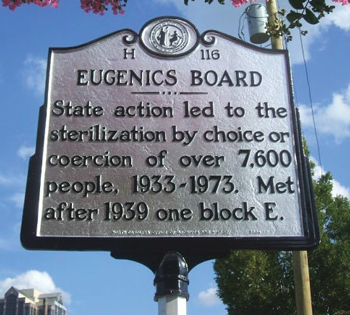
An historical marker in Raleigh, North Carolina.
|
“Trafficking in organ trade is an organized crime, involving a host of offenders. The recruiter who identifies the vulnerable person, the transporter, the staff of the hospital, clinic and other medical centres, the medical professionals, the middlemen and contractors, the buyers, the banks where organs are stored are all involved in the racket. It is a fact that the entire racket is rarely exposed and therefore, the dimensions are yet to be appropriately fathomed,” the report noted.
In America, human bodies are looked at as commodities to be bought, sold and used. Young girls are trafficked globally for sex, and it is not uncommon to see advertisements seeking sperm or egg donors. Dr. Shabazz said a well-known Ivy League school offers financial compensation for sperm and egg donors. Often, donors with a certain hair color, eye color and grade point average are requested by those seeking services. She opposes financial incentives to donate organs because of the ethical problems it creates and because Black people would come out the losers either way.
“I am against it because it can be a danger in our community, both in terms of us being unwilling donors and for us being last in line to receive (donated organs). I don’t think that is a good idea at all,” she said.
(This is the first part of a series.)
More information regarding America’s history of unethical
medical experimentation can be found in the following books:
Bad Blood: The Tuskegee Experiment
by James H. Jones
Medical Apartheid: The Dark History of Medical Experimentation
on Black Americans from Colonial Times to the Present
by Harriet A. Washington
The Immortal Life of Henrietta Lacks
by Rebecca Skloot
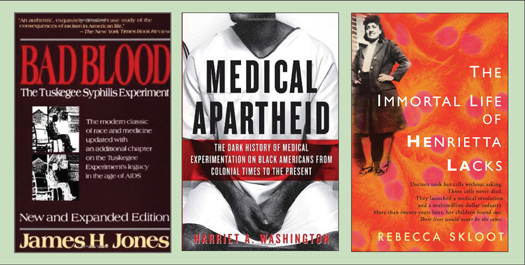 |
Special to the NNPA from The Final Call
